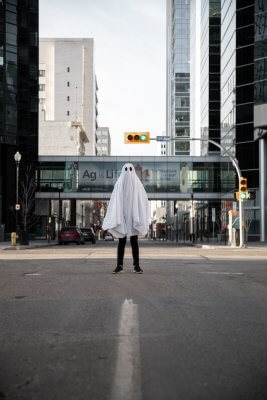‘Return to Normal’ Not Working for You? Here’s Why (and What to Do Now)

photo by Tandem X Visuals
by Andrea M. Darcy
Everyone else is happily popping out to the shops without a mask, has long forgotten about social distancing, is ignoring government advice, and is fine with life post lockdown. But you, on the other hand, can’t just return to normal.
You are frustrated. Even angry. What is wrong with everyone? Haven’t they seen the science? Or the numbers that aren’t really that different? Can’t they take the simplest of actions just in case?
Risk takers vs ‘play it safe’ types
Why are some of us more cautious than others? More likely to be rule followers than rule breakers?
Scientists have long hoped to pin risk taking onto genetics. No luck. A large-scale 2019 study based on the genetic information of over one million Europeans found that even when combining different genetic variants, a measly 1.6 per cent of the differences in risk taking across individuals could be attributed to genes.
German researchers, on the other hand, linked risk taking to happiness. A survey of 20,000 subjects around risk taking in things like car driving, financial matters, health matters, and career found that happy people are more likely to take risks.
Entitlement and risk taking
But the same study also found other curious results, such as that men were more likely to take risks, as well as tall people and young people and those with an educated family.
Which tempts a different conclusion – the greater the natural privilege, the more likely you are to be happy and therefore take risks. So if you feel that the entitled wealthy people in your neighbourhood seem to think they are immune from Covid-19 and be the worst offenders with social distancing? You just might be onto something.
Anxiety and safe behaviours

By: H.L.I.T.
So now on to all us less happy types. Who might, say, suffer from the joys of anxiety and/or complex PTSD with depression often thrown in the mix. We are indeed more likely to be the ones playing it safe.
Anxiety and PTSD turn your brain into ‘perfect citizen’ mode.
How? They trigger ‘fight or flight‘ mode, which floods your brain with a cocktail of chemicals like cortisol. Chemicals designed to have you scanning for incoming danger and blocking out distractions from this pastime. So of course you will want to distance and wear a mask on the bus.
Why you won’t relax without facts
Fear of the unknown, or ‘FOTU’, is seen as a key element of anxiety and anxiety disorders. As Nick Carleton, professor of psychology and author the paper, “Fear of the Unknown: One Fear to Rule Them All?” explains, we have a “dispositional incapacity to endure the aversive response triggered by the perceived absence of salient, key, or sufficient information”.
In other words, if we don’t have the facts, or if the facts are convoluted and unclear? Hello, Trump and Boris? Then our ‘intolerance for uncertainty’, or fearful thoughts leading to anxiety, begin.
Anxiety and the return to normal
The funny thing about lockdown is that many of us anxiety sufferers had a surprising break from our panicked thoughts. Yes, the world outside our windows was suddenly as dangerous as our minds had spent years telling us it was. But gone was a need to panic about social events, our appearance, workplace politics, etcetera.
Resisting a return to normal can also be an unconscious way to not give up your newfound calm.
How to keep some of that calm without resorting to hiding away permanently, alienating all your friends, and upsetting your neighbours with your obvious disgust at their carelessness?
How to return to normal without losing all your friends
1. Claim your freedom of choice.
If before lockdown you used excuses and little white lies to stay home when your anxiety was high? And then suffered guilt?
Now is the time to recognise that this was always your choice, and that lockdown or no, you can stay home if and when you want without the psychological games. Besides, ‘cocooning’ is a thing now.
2. Take responsibility for your boundaries.
Pressured by friends or a partner to go to social events that feel unsafe to you, do you go? When you meet a friend in the park who stands too close, do you feel it’s impolite to step back and mention distancing?
That’s on you, not them. You are the one who is responsible for your choices and for standing up for what you want.
See this as an incredible opportunity to finally step into powerful boundary setting. If not now, then when?
3. Aim to see other perspectives.
This isn’t about making the other person ‘right’. It’s about a small moment of connection over separation so that you do not stay stuck in anger and frustration.
Think of the last person who really made you angry with their carelessness. Say, that man talking on his phone walking right smack centre of the sidewalk so that nobody could social distance around him.
How in your life have you ever been like him? Been distracted? Had a phone call that stressed you so much you were oblivious to your surroundings? Is it possible you have even once, briefly, been in his shoes?
4. Let social media get on without you.
Go onto social media only to be enraged by pictures of beaches flooded with people, and friends who like conspiracy theories insinuating you are weak and a sheep for believing there is a virus at all?
Again, your decisions are your own. If social media upsets you, then stay off of it.
5. Leave other people to their own decisions.
All that time you spend debating with others why their decisions about a return to normal are ‘wrong’? Is time that leaves you more anxious than ever or feeling misunderstood and lonely. It’s also time you can use for things like self-care or wellbeing activities that make you feel good, not worse.
We can’t control other people, but we can control whether we give them our energy and attention or not.
6. Work on trusting the one person who does matter.
Yes, governments are hard to trust. Yes, it’s a crazy world out there.
But the best way to feel safe is not moving to a country with a better government, but becoming your own safe environment. The person you need to trust the most is…YOU.
Can you trust yourself to make decisions that work for you, regardless of what others think? To stand up for yourself? To walk away if someone isn’t respecting your boundaries?
7. Get support.
Can’t speak up and set boundaries? Or stop feeling furious at others and feeling that you are a victim of everyone else’s stupidity?
Sometimes we are stuck in a pattern of behaving and a set of entrenched negative core beliefs that are simply bigger than us. Talk therapy offers a new perspective and a safe space to recognise and change what holds you back.
Time to kick anxiety to the curb and finally feel in charge of your life? We provide top London therapists in central London. Or use our booking platform to find affordable UK-wide therapists and online counsellors.
Still have a question about being unable to return to normal? Post in the comment box below.
 Andrea M. Darcy is the editor and lead writer of this site and suffers from anxiety. She is definitely finding the return to normal strange and has yet to step foot on public transport since lockdown started lifting. Find her on Twitter.
Andrea M. Darcy is the editor and lead writer of this site and suffers from anxiety. She is definitely finding the return to normal strange and has yet to step foot on public transport since lockdown started lifting. Find her on Twitter.




